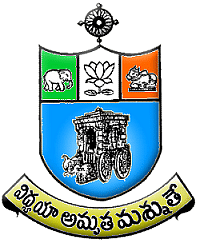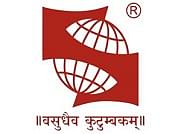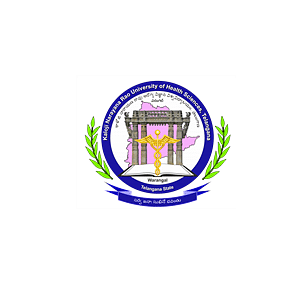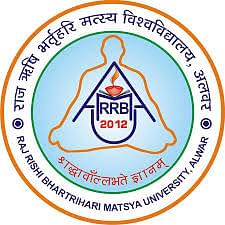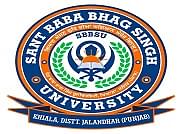Introduction about Ph. D in Computer science
PhD in Computer Science at top collegeis an advanced academic degree
program designed for individuals who are deeply passionate about pushing the
boundaries of knowledge in the field of computing. Computer science is a
dynamic and rapidly evolving discipline that encompasses a wide range of
topics, including algorithms, artificial intelligence, machine learning, data
science, cybersecurity, computer networks, software engineering, and more.
During a
PhD in Computer Science, students engage in rigorous research aimed at
advancing the theoretical foundations, methodologies, and technologies that
underpin computing systems and applications. This often involves identifying
novel problems, developing innovative solutions, and making significant
contributions to the body of knowledge in computer science.
The
coursework in a PhD program typically covers advanced topics in computer
science, mathematics, and related disciplines, providing students with a strong
theoretical foundation and research skills necessary for conducting independent
research. Students may also have the opportunity to specialize in specific
areas of interest through elective courses, seminars, and research projects.
One of
the defining features of a PhD in Computer Science is the dissertation, where
students conduct original research under the guidance of a faculty advisor. The
dissertation represents a significant contribution to the field and typically
involves the development of new algorithms, methodologies, systems, or
theories, along with a thorough analysis and evaluation of the research
findings.
Graduates
of PhD programs in Computer Science are well-equipped to pursue careers in
academia, industry research labs, government agencies, and technology startups.
They may work as professors, researchers, data scientists, software engineers,
cybersecurity experts, or consultants, among other roles. Additionally, the
critical thinking, problem-solving, and analytical skills developed during a
PhD program are highly transferable and valuable in a wide range of fields
beyond computer science.
What is admission process for Ph. d in
Computer science?
The admission process for PhD in
Computer Science typically involves several steps, although
specifics may vary slightly depending on the university and country. Here's a
general overview:
Research
and Identify Programs: Begin by researching universities and programs offering PhDs in
Computer Science. Look for programs that align with your research interests and
career goals. Consider factors such as faculty expertise, research
opportunities, funding options, and program reputation.
Meet
Admission Requirements: Review the admission requirements for each program you're interested
in. These requirements often include a bachelor's or master's degree in
computer science or a related field, with a strong academic record. Some
programs may also have specific prerequisites or coursework requirements.
Prepare
Application Materials: Gather the required application materials, which typically include:
Completed
application form: Fill out the application form provided by the university or
program.
Transcripts:
Submit official transcripts from all previous institutions attended.
Letters
of recommendation: Request letters of recommendation from academic or
professional references who can speak to your qualifications and potential for
success in a PhD program.
Statement
of purpose: Write a compelling statement outlining your research interests,
academic background, career goals, and reasons for pursuing a PhD in Computer
Science.
Resume
or curriculum vitae (CV): Provide a detailed summary of your educational
background, research experience, work history, publications, and other relevant
accomplishments.
Standardized
test scores: Some programs require GRE scores, although this requirement is
becoming less common. Check the specific requirements of each program you're
applying to.
Submit
Applications:
Complete and submit your applications by the deadlines specified by each
program. Be sure to double-check all application materials for accuracy and
completeness before submission.
Interview
(if required):
Some programs may require an interview as part of the admissions process. If
selected for an interview, be prepared to discuss your research interests,
academic background, and career aspirations.
Notification
of Admission:
After reviewing applications, the admissions committee will notify applicants
of their admission status. If admitted, you may receive an offer letter
outlining any funding offers, such as assistantships or fellowships, and any
additional requirements for enrollment.
Acceptance
and Enrolment:
If you receive an offer of admission, carefully review the terms and conditions
of acceptance, including any deadlines for accepting the offer and submitting
enrollment deposits. Once you accept the offer, you can proceed with the
enrollment process, which may include registering for classes and attending
orientation programs.
It's
essential to start the application process early, gather all required
materials, and meet all application deadlines. Additionally, reaching out to
faculty members whose research aligns with your interests can be beneficial, as
they may provide guidance on the application process and may even be willing to
support your application.
What is eligibility of Ph. D in Computer
science?
The eligibility for PhD in Computer
Sciencecan vary depending on the university and program. However,
here are some common eligibility criteria:
Educational
Background: Most
PhD programs in Computer Science require applicants to have a strong
educational background in computer science, computer engineering, or a closely
related field. This typically includes a bachelor's or master's degree from an
accredited institution.
Minimum
GPA: Many
programs have a minimum GPA requirement for admission. The specific GPA cutoff
may vary, but applicants are generally expected to have a high academic
standing.
Prerequisite
Courses: Some
programs may require applicants to have completed specific prerequisite courses
in computer science or related areas. These prerequisites may vary depending on
the program and the applicant's previous coursework.
Research
Experience:
While not always mandatory, having research experience can strengthen your
application for a PhD program in Computer Science. This may include
participating in research projects, completing a thesis or research-based
master's program, or publishing research papers.
Letters
of Recommendation:
Most PhD programs require letters of recommendation from academic or
professional references who can speak to your academic abilities, research
potential, and suitability for doctoral studies.
Statement
of Purpose:
Applicants are typically required to submit a statement of purpose or personal
statement outlining their research interests, academic background, career
goals, and reasons for pursuing a PhD in Computer Science.
Standardized
Test Scores:
Some programs require applicants to submit scores from standardized tests such
as the Graduate Record Examination (GRE) or equivalent exams. However, this
requirement is becoming less common, and some programs may waive the GRE
requirement or place less emphasis on test scores.
English
Language Proficiency: For international applicants whose native language is not English,
proficiency in English is usually required. This may be demonstrated through
standardized tests such as the Test of English as a Foreign Language (TOEFL) or
the International English Language Testing System (IELTS).
Additional
Requirements:
Depending on the program, there may be additional requirements such as a
writing sample, interviews, or specific coursework prerequisites.
It's
essential to review the specific eligibility criteria and application
requirements for each PhD program you're interested in to ensure you meet all
the necessary qualifications before applying. Additionally, contacting the
admissions office or program coordinator for clarification on any requirements
can be helpful.
What is syllabus of Ph. D in Computer science?
The syllabus for PhD in Computer
Sciencecan vary significantly depending on the specific research
interests of the student, the focus areas of the program, and the requirements
set by the institution. However, here's a broad overview of potential topics
that may be covered in a PhD program in Computer Science:
Core
Computer Science Courses: These courses provide a solid foundation in key areas of computer
science, including:
Algorithms
and data structures
Theory
of computation
Operating
systems
Computer
architecture
Programming
languages and compilers
Database
systems
Software
engineering principles
Advanced
Topics in Computer Science: Students typically take advanced courses in specialized areas of
computer science based on their research interests. These may include:
Artificial
intelligence and machine learning
Computer
vision and image processing
Natural
language processing
Robotics
and autonomous systems
Human-computer
interaction
Computer
graphics and visualization
Distributed
systems and networking
Cybersecurity
and cryptography
Research
Seminars:
Students often participate in research seminars where they present their own
research findings, discuss current topics in computer science, and engage with
peers and faculty members.
Independent
Research: The
core of a PhD program in Computer Science is independent research conducted
under the supervision of a faculty advisor. Students work on a dissertation,
which involves identifying a research problem, conducting original research,
and making significant contributions to the field.
Dissertation
Proposal and Defense: Students typically develop a dissertation proposal outlining their
research objectives, methodologies, and expected contributions. They defend
their proposal before a committee of faculty members to receive approval to
proceed with their research.
Advanced
Elective Courses:
Depending on the program and the student's research interests, there may be
opportunities to take advanced elective courses in specialized areas of
computer science or related fields.
Teaching
Experience: Some
PhD programs require students to gain teaching experience by serving as
teaching assistants for undergraduate courses or leading discussion sections.
Professional
Development: PhD
programs often include components aimed at developing students' professional
skills, such as:
Writing
and presenting research papers
Grant
writing and funding applications
Ethics
in research and academic integrity
Collaboration
and teamwork
Career
planning and job search strategies





